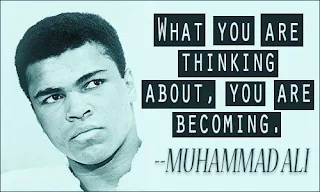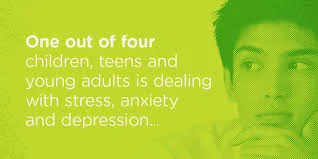I was about six and the parish priest walked into the room. His vestments swirled around him as we all rose in deference to this holiest of holy messenger of God. The air wafted over us as he passed, stopping to settle in the middle of the front of the class. He was like a giant in black robes as he towered over us all, his large golden crucifix hanging from around his white dog collar, adding to his mystique and the drama of the situation.
“Give me the child until he is seven and I’ll give you the man." St
Francis Xavier
My teacher, sister Mary explained that Father Pat was here to talk about heaven and hell and how we could be good people; how we could win over God's favour via good deeds and how the sacraments of confession and communion would ensure we could enter the gates of heaven one day. I felt quite scared and my fear continued to grow as he began his talk in his Irish brogue...
... 'Sure isn't it true that the good Lord has given us free will? D'ya know what that means?' He answered his own question and we just sat in awe as he expounded on how it was our job to do this and to think that. I was told what to believe as decreed by the priests and nuns as I continued my indoctrination in the absolutes of the dogma of the Catholic version of Christianity. I was a sinner and it was God who would forgive my sins and deliver me from all that was bad and evil!
For the wages of sin is death, but the free gift of God is eternal life in Christ Jesus our Lord. Romans 6:23
He then pointed to the right side of the room (our left) as a representation of heaven; where good people go, who think and act in accordance with the word of God. To his left was hell. This is where we would go if we didn't repent our sins; eternal fire and damnation awaited those of us who were sinners, those who blasphemed and swore, who told lies and had bad unhealthy (carnal) thoughts and imaginings.
He proceeded to empty a larger amount of ink onto the blotting paper. The stain radiated from where it was placed on the white paper. When it stopped the priest declared that a significant sin would have been made to make such a blemish. He motioned towards 'hell' and stopped. He said, 'this is a venial sin. Your soul still has divine grace but it is dirty and needs cleaning! God forgives us all!' Things would be fine if we repented our sins and paid the appropriate penance. So off to confession we could go and all would be OK again.
The priest became animated and his voice more shrill as he emptied the entire contents of the pen onto the blotting paper! He walked to the left of the room and as the ink stain spread on the paper he got closer to 'hell.' 'This is your soul when ye commit a mortal sin. Sure this is when God is most unhappy with ye. Ye are in grave danger of not going to heaven!'
By way of illustration of the concept of sin and its consequences Father Pat had hit the proverbial on the head. The class of six year olds sat in silent terror as Sister Mary thanked the priest and invited us all to pay close attention to what the 'good' father had said to us. 'Remember that God is watching you. He is everywhere!' she reminded us as the priest left the room as dramatically as he had entered. Whoosh and he was gone.
That thirty minute session above all others at junior school had impacted me in ways I would never imagine, consciously and unconsciously. The teaching of dogma (a set of principles laid down by an authority as incontrovertibly true) leaves an impressionable young person constrained (controlled) by these 'absolute truths' that govern our very existence. What were these truths that could not be questioned? How could these impact on ones mental health and well being?
- The idea that we are born to serve and adore an omnipotent being who made us in his image and lives in heaven.
- That he is aware of our every action and thought. That heavenly privileges can be withdrawn if and when we sinfully transgress the rules of the dogma laid down.
- That we are told we must love our neighbour as ourselves and that should we ever covet our neighbours possessions (material and otherwise) in thought or in deed would constitute a sin that would invite the wrath of the vengeful God that we were all taught to fear.
I did unto others until I resented them with a passion. I learnt to seek the approval of all and sundry because in pleasing others I was pleasing God. I lost my own identity in placing others well being above my own mental health. I would expect others to do likewise for me and felt angry when they didn't (why should they?). I learnt to be judgemental - people should/ought/must think/act as I do according to the rules (again why should they?). The propaganda had worked and I was in the thrall of the dogma that I had inherited. My absolute beliefs were rusted onto to my subconscious and I had all the answers! So I thought.
Fortunately I happened upon the work of the Stoic philosophers, Bertrand Russell, Christopher Hitchens and Albert Ellis who were all singing from the same hymn sheet. An opinion is just that and doesn't constitute fact.
A persons worth is not tethered to how others think of her nor to her successes or failures. I learnt that thinking in absolutes stopped me from considering other philosophical views. I moved from the fixed inflexible thinking of the governed and subservient; from an absolutist to a free thinker. I began to question what I had been told to be irrefutable. I had started to develop independence of thought; to think for myself!
In REBT (Rational Emotive Behaviour Therapy) terms I shifted from believing that I must always be perfect and achieve my goals. That people I like must like me. That the world should give me what I want. If none of these demands were satiated it was the greatest travesty of justice! (because it shouldn't be that way!). I felt out of whack a lot of the time because I wasn't thinking straight!
The universe doesn’t care about you, it’s not for or against you, it just doesn’t give a shit. Albert Ellis
I instead learnt to accept that I would sometimes (often) not hit the mark (and the sun still rose in the morning). I understood that everyone can't see me as I would like them to regard me (I chose to prefer this was the case). I learnt that the world/life doesn't take into account my personal needs and sensibilities and it is how I responded to events that mattered (I preferred things to go well but didn't demand that they should).
This is a continuing journey and I subscribe to the philosophy of Albert Ellis who said:
Fortunately I happened upon the work of the Stoic philosophers, Bertrand Russell, Christopher Hitchens and Albert Ellis who were all singing from the same hymn sheet. An opinion is just that and doesn't constitute fact.
The fact that an opinion has been widely held is no evidence whatever
that it is not utterly absurd.
Bertrand Russell
In REBT (Rational Emotive Behaviour Therapy) terms I shifted from believing that I must always be perfect and achieve my goals. That people I like must like me. That the world should give me what I want. If none of these demands were satiated it was the greatest travesty of justice! (because it shouldn't be that way!). I felt out of whack a lot of the time because I wasn't thinking straight!
The universe doesn’t care about you, it’s not for or against you, it just doesn’t give a shit. Albert Ellis
This is a continuing journey and I subscribe to the philosophy of Albert Ellis who said:
The best years of your life are the ones in which you decide your problems are your own. You do not blame them on your mother, the ecology, or the president. You realise that you control your own destiny.
















